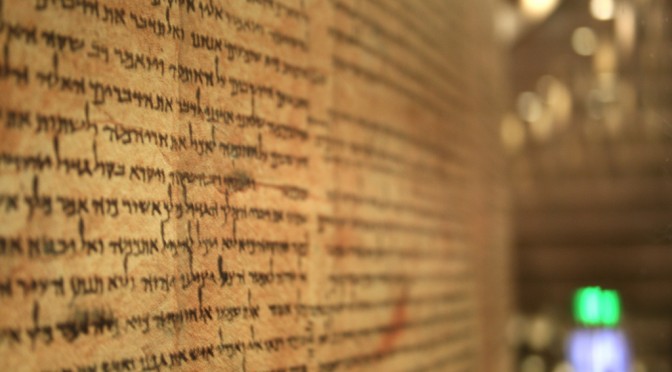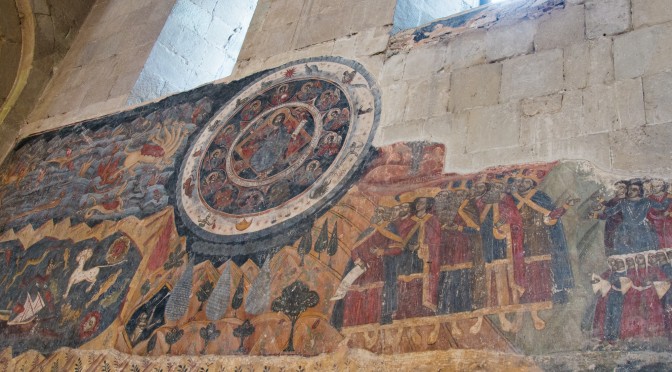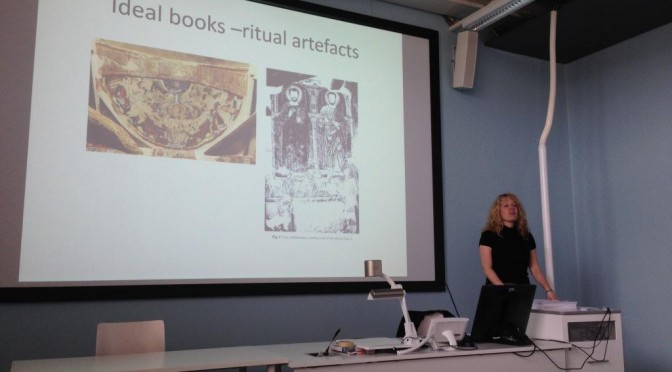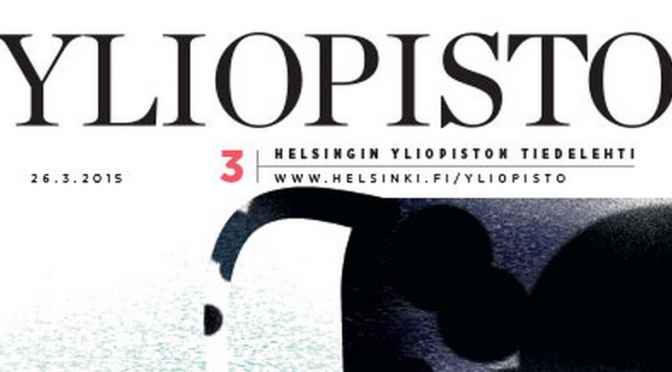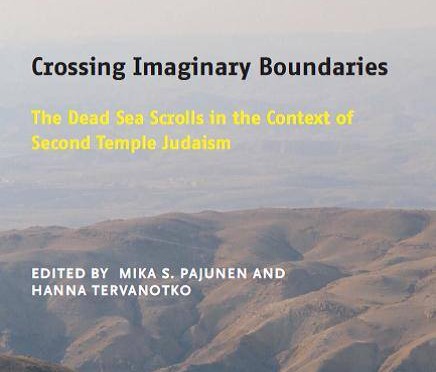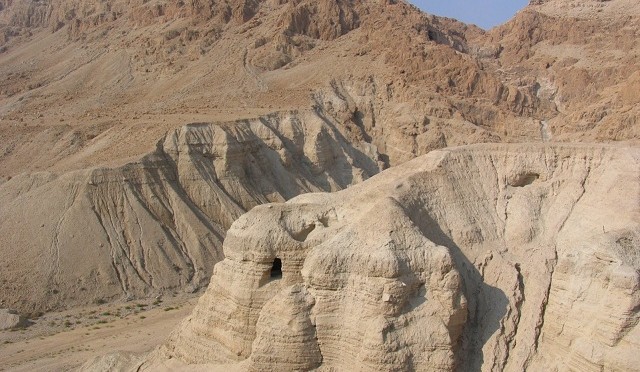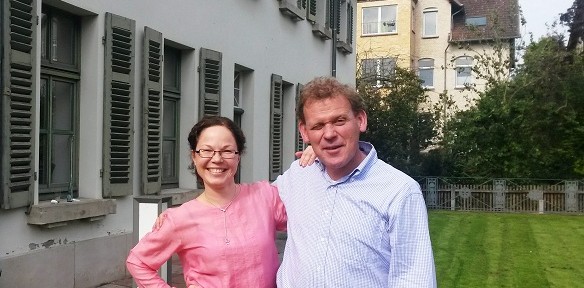Yle Radio 1:n toimittaja Kalle Haatanen on tunnettu yleissivistävistä syvähaastatteluistaan: lauantaiaamupäivisin Haatanen tarjoaa kulloisellekin vieraalleen liki tunnin aikaa kertoa omista kiinnostuksenkohteistaan ja asiantuntemuksensa alueista. Elokuun viimeisenä lauantaina Haatasen vieraana kuultiin huippuyksikön jäsentä, tutkijatohtori Mika S. Pajusta, joka kertoi Qumranilta löydettyjen kirjakääröjen merkityksestä ja sisällöstä. Haastattelun taustalla oli pian ilmestyvä kirja Kuolleenmeren kadonnut kansa, jonka Pajunen on toimittanut yhdessä professori Raija Sollamon kanssa. Continue reading Kadonneet kirjakääröt radioaalloilla
Tag Archives: Qumran
Reflections on “From Scribal Error to Rewriting: How (Sacred) Texts May and May Not Be Changed” (Tbilisi, 2015)
Several members of the CSTT had the opportunity to attend the international symposium “From Scribal Error to Rewriting: How (Sacred) Texts May and May Not Be Changed” in Tbilisi, Georgia, from 30 April to 3 May 2015. The symposium was dedicated to the memory of Septuagint scholar Udo Quast and was a fitting memorial for his important work. We were generously hosted by Anna Kharanauli and many colleagues and students from the Ivane Javakhishvili Tbilisi State University. Continue reading Reflections on “From Scribal Error to Rewriting: How (Sacred) Texts May and May Not Be Changed” (Tbilisi, 2015)
Scripture and/or scripture – Reflections from the joint RRR/CSTT Workshop on Text, Ritual and Magic, April 14th-15th
by Nils Hallvard Korsvoll (MF Norwegian School of Theology)
In these two days of discussing various interfaces between texts and rituals it has become increasingly clear to me that the category scripture in itself is insufficient to describe the range of venues and contexts where we find biblical material. Tracing the presence and use of biblical text in various contexts, it seems we must treat scripture as an analytic rather than a descriptive category. Continue reading Scripture and/or scripture – Reflections from the joint RRR/CSTT Workshop on Text, Ritual and Magic, April 14th-15th
Finnish Qumran Studies Featured in Popular University Magazine
The science magazine of the University of Helsinki published in its most recent issue (3/15) an interview with Academy Research Fellow Jutta Jokiranta, the leader of team four in our Centre of Excellence. In the article, Jokiranta sheds light on the significance of the most important archaeological find of the 20th century. In the spotlight of the article is the Qumran community, its relationship with Second-Temple Judaism and the significance of the texts discovered from the caves. Continue reading Finnish Qumran Studies Featured in Popular University Magazine
Suomalainen Qumran-tutkimus esillä Yliopisto-lehdessä
Helsingin yliopiston tiedelehti julkaisi uusimmassa numerossaan (3/15) huippuyksikömme nelostiimin johtajan, akatemiatutkija Jutta Jokirannan haastattelun. Artikkelissa Jokiranta valottaa 1900-luvun merkittävimmän arkeologisen löydön taustoja ja vaikutuksia. Jutun keskiössä on Qumranin yhteisö, sen yhteys aikansa juutalaisuuteen ja luolista löytyneiden tekstien merkitys. Continue reading Suomalainen Qumran-tutkimus esillä Yliopisto-lehdessä
Suomalaiset Qumran-tutkijat ylittävät rajoja
Huippuyksikön tutkijat TT Mika Pajunen ja TT Hanna Tervanotko pääsivät tällä viikolla pitelemään käsissään uunituoretta työnsä tulosta, kun heidän toimittamansa kirja Crossing Imaginary Boundaries: The Dead Sea Scrolls in the Context of Second Temple Judaism ilmestyi. Kirja on Suomen Eksegeettisen Seuran tuorein julkaisu, ja se koostuu miltei kokonaan huippuyksikön tutkijoiden artikkeleista. Continue reading Suomalaiset Qumran-tutkijat ylittävät rajoja
Working with Fragmentary Manuscipts
by Hanna Vanonen
When a new partial or complete manuscript is found, the first scholarly endeavor related to it is usually to produce a reliable edition of the fragment or fragments so that all interested scholars and students can get a trustworthy impression of the material without even seeing it. As regards the Qumran manuscripts, this work began already in the 1940’s and 1950’s. Continue reading Working with Fragmentary Manuscipts
European Qumran Network Met in Göttingen
by Katri Antin
Several European universities foster the study of the Dead Sea Scrolls and train doctoral students to become experts in the Scrolls. In September 2014, both junior and senior scholars from the universities of Helsinki, KU Leuven, Groningen and Manchester were kindly invited to the Georg-August-Universität Göttingen to a workshop titled Dead Sea Scrolls and History — A Reassessment. Continue reading European Qumran Network Met in Göttingen

